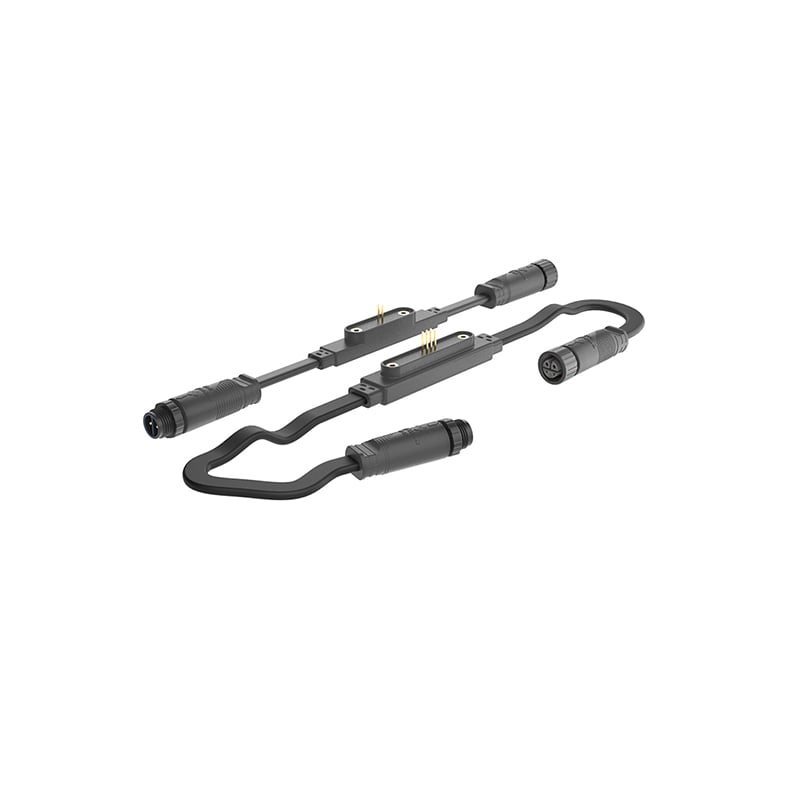Understanding the Three Types of Junction Box: A Comprehensive Guide
The junction box is an essential component in an electrical system that secures and protects the connection of electrical wires. Basically, it is used for housing wire connections that need to be spliced together. Junction boxes come in three different types and each type serves a specific purpose. In this article, we'll take a closer look at these three types of junction box, their uses, and their benefits.
1. Plastic Junction Box
A plastic junction box is made of hard plastic, usually polycarbonate, ABS, or PVC. It is lightweight, corrosion-resistant, and easy to install. The plastic junction box is commonly used in indoor electrical applications because it is not weather-proof. It comes in various sizes and shapes to accommodate different wire gauges, making it a versatile solution for many applications.
2. Metal Junction Box
A metal junction box is made of aluminum, steel, or galvanized steel. It is more durable than a plastic junction box and is ideal for outdoor applications because it is weather-proof. The metal junction box is also used in high-traffic and harsh environments because of its sturdy construction. It comes in different sizes and shapes, just like the plastic junction box, and it can accommodate different wire gauges.
3. Underground Junction Box
An underground junction box is designed to be buried underground and is commonly used in underground electrical applications. It is weather-proof and can resist corrosion. This type of junction box is ideal for applications where wires need to be buried underground and connected to each other. The underground junction box can also be used in indoor or outdoor applications, depending on the construction and installation of the box.
Which Type of Junction Box Should You Choose?
The type of junction box you choose depends on the specific requirements of your electrical project. If your project is indoor and doesn't require weather-proofing, then a plastic junction box may be the ideal choice. If your project is outdoor or requires exposure to harsh conditions, then a metal junction box would be a better option. If your project involves underground wiring, then an underground junction box may be the solution you need.
Junction Box Benefits
Junction boxes offer various benefits, such as providing a secure reinforcement to the connection of electrical wires, preventing electrical hazards and electrical fires, and ensuring the safety of people who come into contact with the electrical system. Junction boxes also make it easier to troubleshoot and maintain the electrical system, making them an essential component in any electrical project.
Junction Box Safety
It is important to follow safety protocols when installing or handling a junction box. Make sure to disconnect all power sources before starting any electrical work. Always wear protective gear, such as gloves and goggles, when working with electrical systems. Also, make sure to follow the manufacturer's instructions when installing or using a junction box.
Junction Box Maintenance
Proper maintenance of junction boxes is vital to ensure their effectiveness and safety. Make sure to inspect your junction boxes regularly and check for any signs of damage or wear and tear. Replace any damaged or worn-out parts immediately. Keep your junction boxes clean and dry to prevent moisture from causing damage to the electrical system.
Conclusion
In summary, the three types of junction box are plastic, metal, and underground. Each type has its own use and benefits. The type of junction box that you choose depends on the specific requirements of your electrical project. Junction boxes offer various benefits, such as providing a secure reinforcement to the connection of electrical wires, preventing electrical hazards and electrical fires, and ensuring the safety of people who come into contact with the electrical system. Always follow safety protocols when installing or handling a junction box, and perform proper maintenance to ensure their effectiveness and safety.

